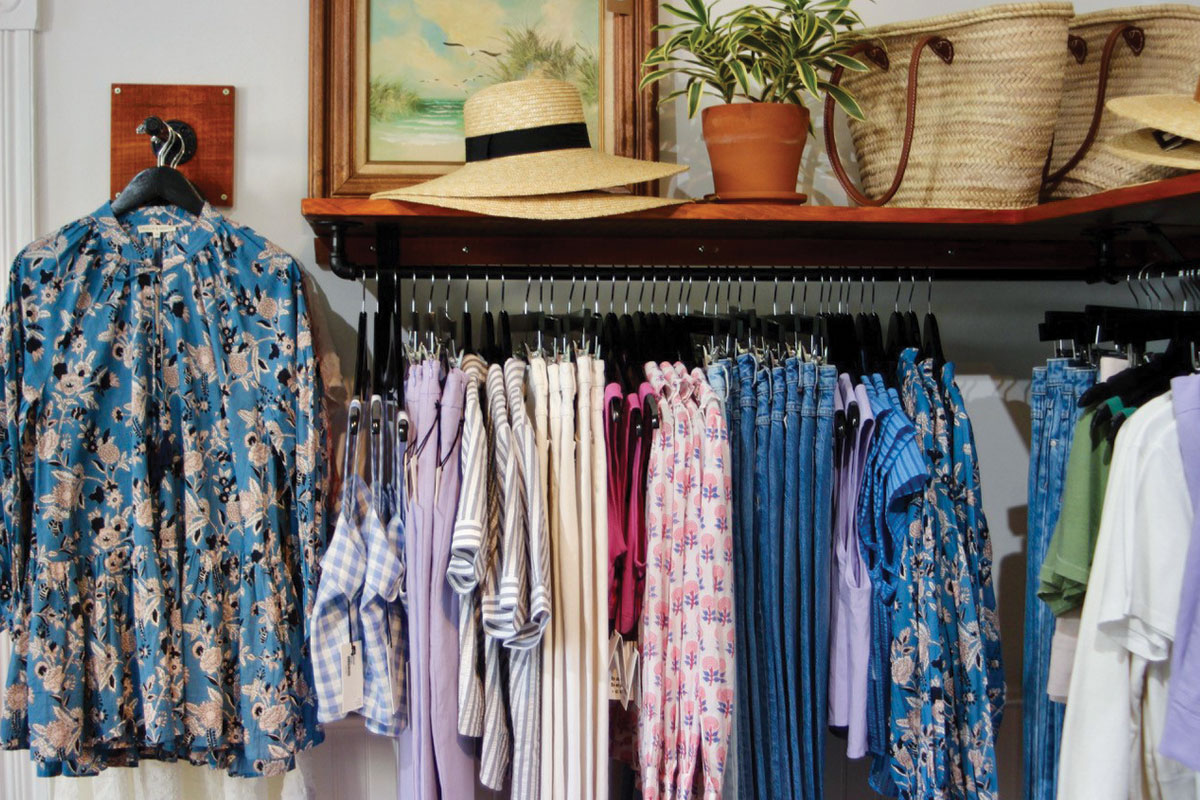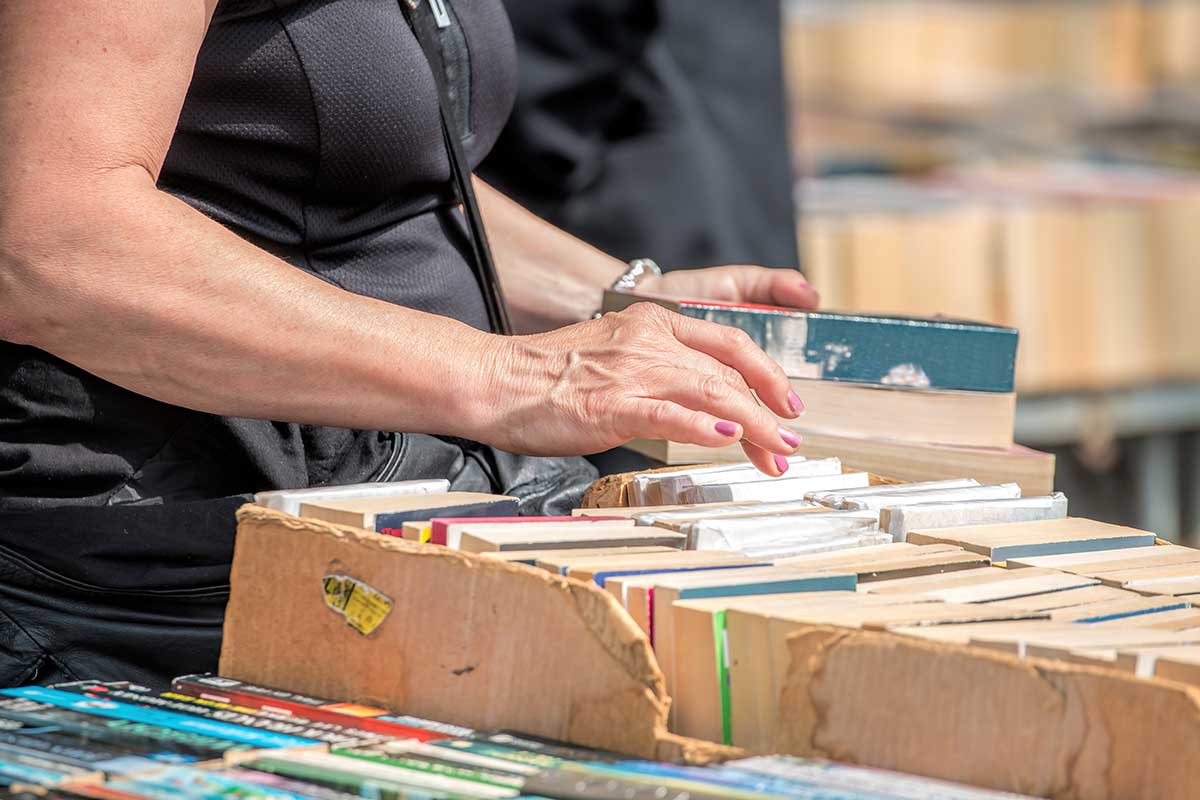The beginning of this story is a familiar one: After several years in New York City, Elyse Smith was tired of the hustle. Post-graduation from Herndon High School, she studied fashion-merchandising management at the Fashion Institute of Technology and then worked a series of glossy corporate jobs in private-label development for major department stores. But by the spring of 2013, she’d fallen out of love with Big Fashion and the Big Apple. It was time for a change.
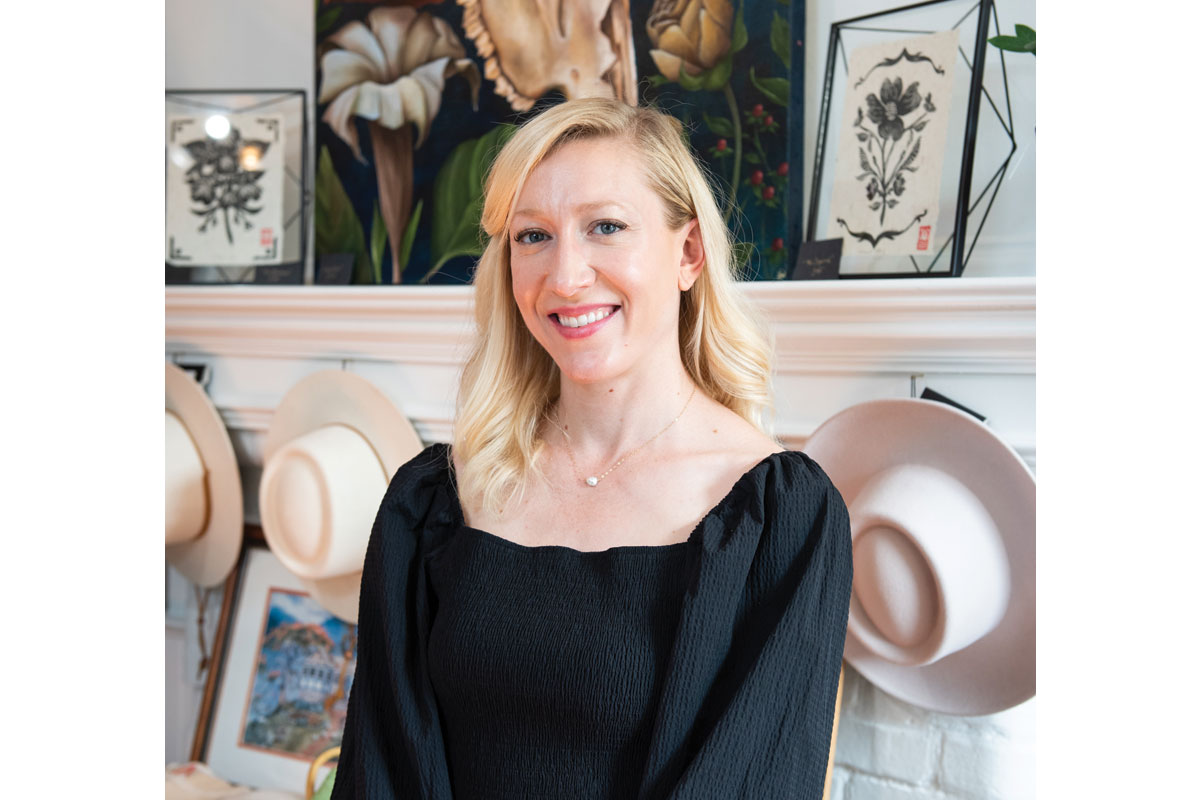
“I sublet my apartment, sold all of my furniture, took off on a road trip around the country, then spent a month in Europe and just kind of reevaluated my life,” she says. Which is where this story takes a turn: Back home in NoVA, Smith’s next move was … a butcher shop. The Organic Butcher of McLean, to be precise. Over the next six and a half years, she worked her way up from cashier to manager—and loved every minute.
“It was the most rewarding job I’ve ever had,” says Smith, 32. “It was like nothing I’d ever experienced—meeting all the farmers, vendors, and artisans we worked with. And the community of customers and co-workers was so close-knit.” Through its emphasis on regenerative agriculture, The Organic Butcher also prioritized sustainability—a practice Smith herself was finding more and more important in her own consumption habits.
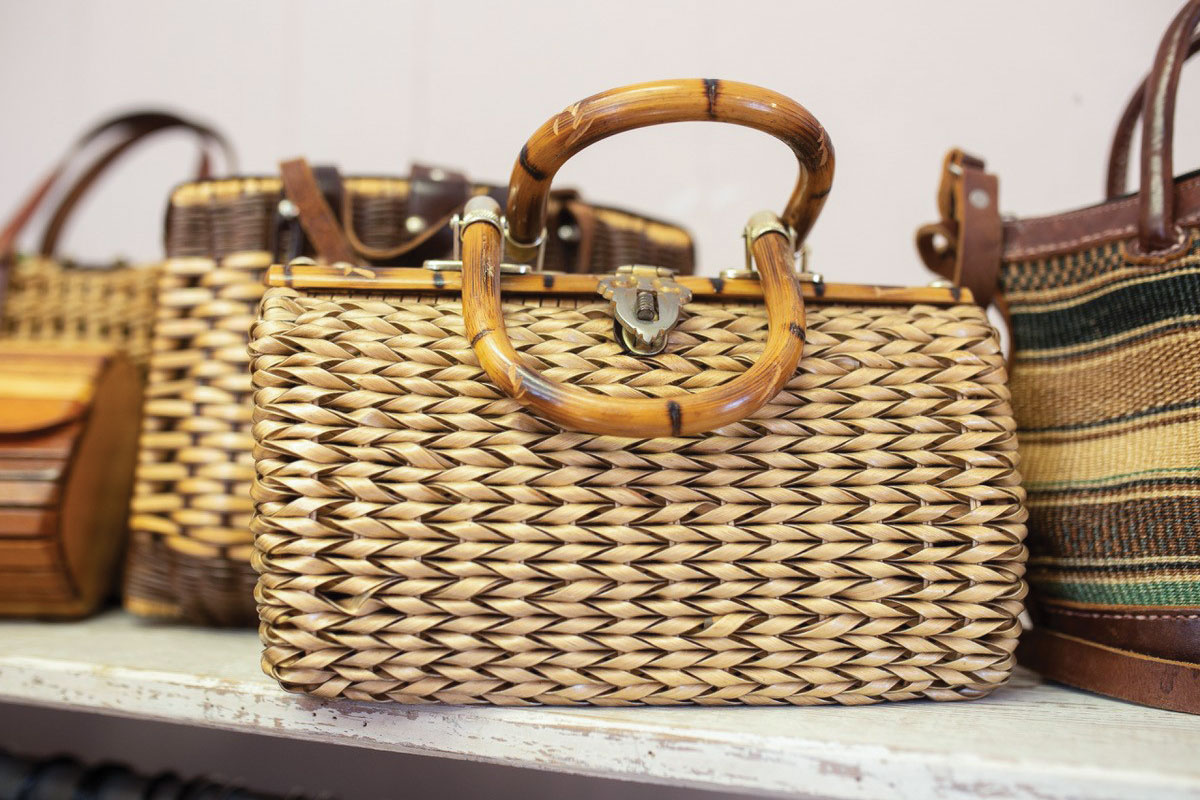
So when the fashion bug bit again in late 2019, Smith was more than ready to take the lessons she learned in responsibly raised meats and reenter the world of dry goods—this time, on her own terms. First came the location: a charming, circa-1904 freestanding home, complete with a cheery red door and big front porch, just off the main shopping artery of downtown Leesburg. It was a gem of a find, so Smith signed the lease in January, before she had a fully fleshed-out business plan—or even a bank loan. But the ideas, all of which were focused on giving her future customers ways to shop in a more locally focused, eco-conscious way, came together quickly. Smith outfitted her new retail space with vintage and secondhand fixtures from Facebook Marketplace and nearby Old Lucketts Store and had Buddy Saunders Flooring—“he’s so local, he’s literally behind the building,” she says with a laugh—polish up the floors. She transformed a beat-up, grassy side area into a community herb garden and then got to stocking the shelves.
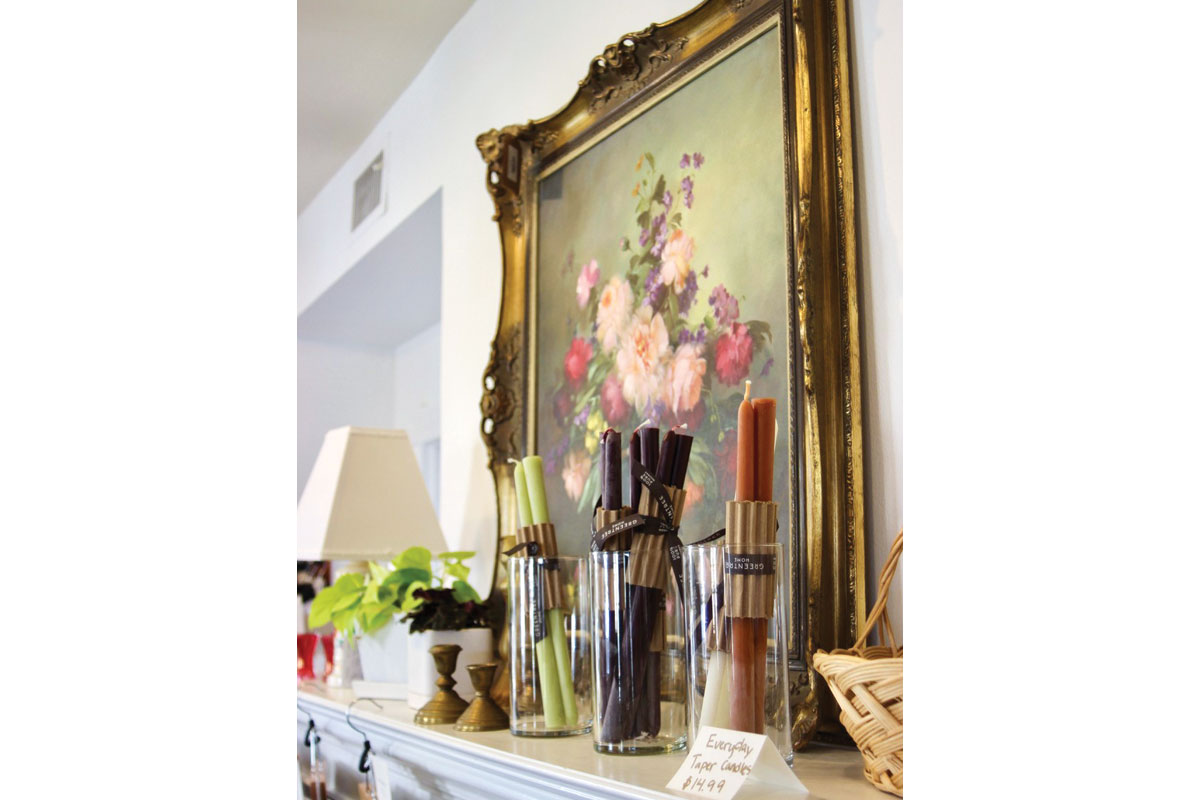
When the store—which Smith named Muz & Rose, after her grandmothers—opened last June, shoppers were treated to a bit of everything. Vintage and gently worn clothing is a major draw—leather handbags and denim are especially popular—as are timeless, versatile options from ethically and sustainably made brands such as Eve Gravel and Ophelia & Indigo. Home goods include vintage rugs, framed art, and plants from Loudoun-based Anomaly Lab; giftables range from ceramics, candles, and delicate Ashburn-made Harper Leigh Jewelry to all the supplies necessary to live a stylish, low-waste life (like grocery totes, reusable face rounds, and portable cutlery kits).
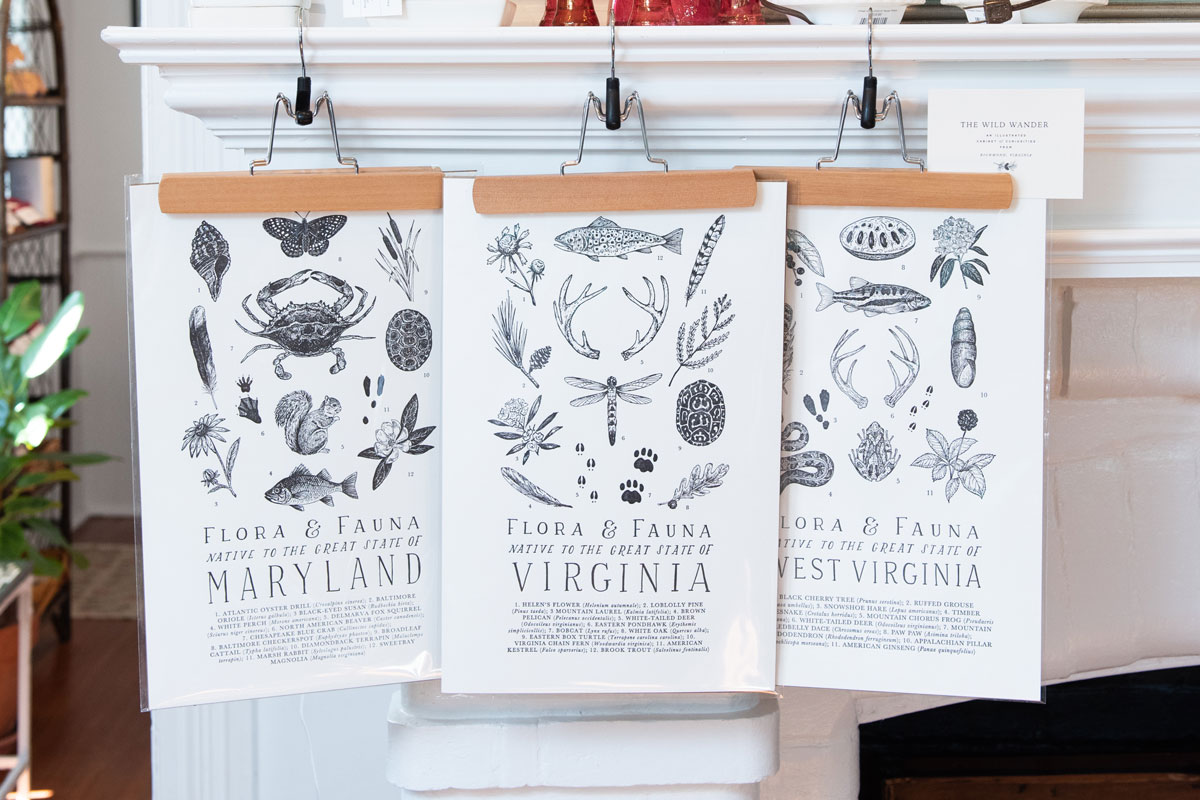
True to the store name—“it’s meant to harken back to the ‘good ol’ days’ of knowing your neighbors, knowing your shopkeepers, and living life in a small town,” explains Smith—Muz & Rose also serves as a place of community gathering and support. She invites local artists and photographers to exhibit on her walls, plans to hold maker-led workshops in a post-COVID world, and, in the spring and summer months, invites smaller vendors—ones who don’t quite have the capital for a full-fledged brick-and-mortar store—to host pop-up shops on Muz & Rose’s front porch. Smith doesn’t charge for the space or take a commission on sales.
“We’re always thinking about how we can work more with the community and find new makers in the area,” Smith says when asked of what comes next. “Beyond that, it’s just kind of a constant work in progress.”
This story originally ran in our June issue. For more stories like this, subscribe to our monthly magazine.

